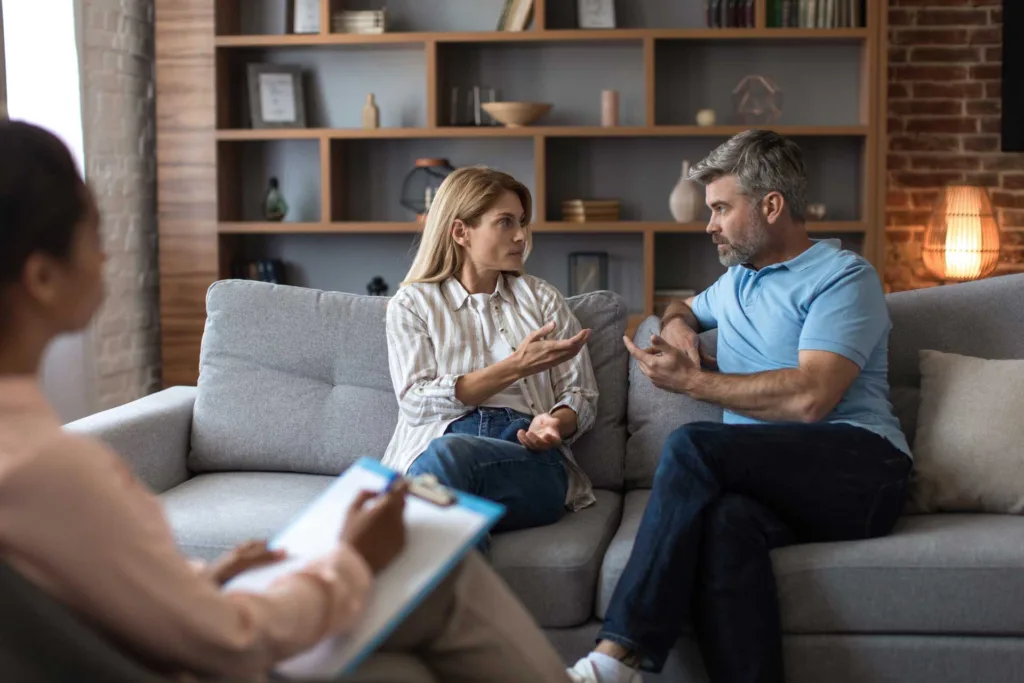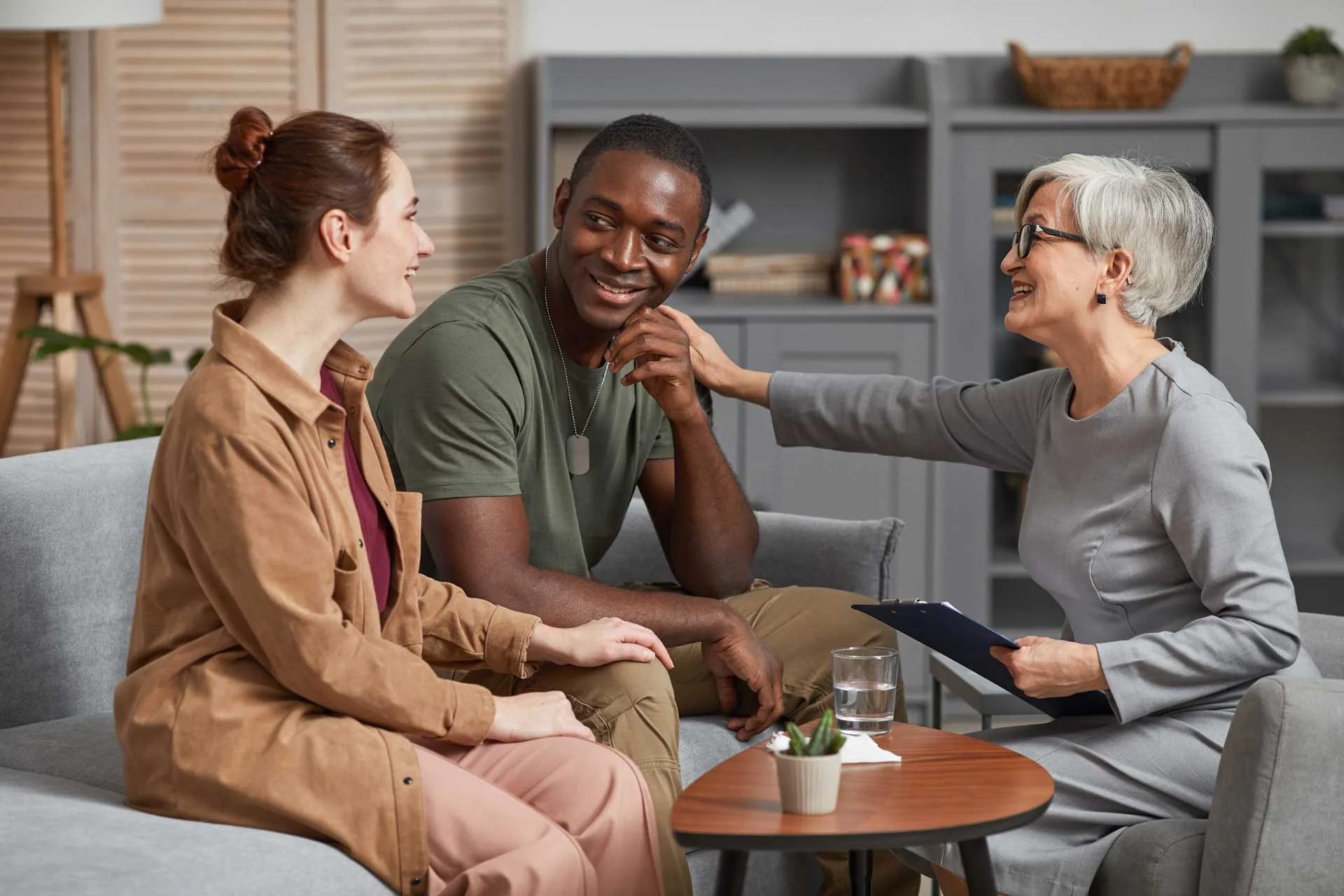Couples Counseling can help unlock the secrets to a stronger, healthier relationship. Discover how it works and why it could be the key to reviving your marriage.
Have you ever wondered how some couples manage to grow stronger despite life’s challenges? For many, the answer lies in couples counseling. Couples counseling is a therapeutic approach designed to help couples understand each other better, resolve conflicts effectively, and build a healthier, more resilient relationship. By offering a safe and supportive space for open communication, couples counseling provides the tools and strategies needed to address issues ranging from communication problems to trust challenges.
In this article, we’ll delve into the essentials of couples counseling. We’ll uncover what it entails, outline how it can help your relationship thrive, and guide you through the key benefits of this transformative process. Whether you’re facing specific challenges or simply want to nurture your bond, couples counseling can be the key to unlocking a stronger, healthier partnership. Let’s explore how!
Table of Contents
What is Couples Counseling?
Couples counseling, also known as marriage counseling or relationship therapy, is a form of psychotherapy aimed at helping couples understand and resolve conflicts to improve their relationship. At its core, this therapeutic practice is designed to help partners gain a deeper understanding of each other and manage interpersonal conflicts more effectively.
Fundamentals of Couples Counseling:
Couples counseling provides a neutral ground where both partners can feel safe to express their feelings, thoughts, and concerns. The process is facilitated by a trained therapist who guides the couple through discussions and exercises that focus on their specific relationship issues. The therapist’s role is not to take sides but to foster a constructive dialogue that respects each partner’s perspective.
The Therapy Process:
During sessions, the therapist may employ various techniques to help the couple explore their relationship dynamics, communication patterns, and individual behaviors that contribute to conflicts. This often includes:
Identifying Underlying Issues: Therapists help couples uncover deeper issues that may be impacting their relationship, such as unresolved conflicts, emotional injuries, or differing expectations about the relationship.
Improving Communication: Couples are taught effective communication skills to express their needs and listen to each other without judgment. This includes learning to speak openly about feelings, desires, and concerns.
Enhancing Emotional Connection: Therapists work with couples to strengthen their emotional connections by encouraging empathy, understanding, and support between partners.
Conflict Resolution: Couples learn strategies to resolve conflicts in a healthy manner, including negotiation techniques and how to find compromises that satisfy both partners.
Therapeutic Goals:
The ultimate goal of couples counseling is to help partners form a clearer understanding of themselves and each other, enhance their communication, and develop a stronger, more fulfilling relationship. Whether addressing specific challenges like infidelity or general communication issues, couples counseling aims to equip partners with the tools they need to navigate the complexities of their relationship successfully.
By engaging in this process, couples can transform their interactions and foster a more loving and supportive partnership, making couples counseling a valuable resource for any couple looking to enhance their relationship.

The Components of Effective Couples Counseling
Couples counseling is a structured, step-by-step process that aims to create a safe space for both partners to share their perspectives while working together to strengthen their relationship. Here’s a closer look at the primary components involved in a typical couples counseling journey:
Initial Assessment:
At the outset, the therapist conducts an assessment to understand the couple’s history, challenges, and goals. This phase often includes:
Individual and Joint Sessions: Partners may first meet individually with the therapist to provide their own perspective. Joint sessions follow to discuss the relationship’s history and core challenges.
Understanding Expectations: Couples discuss what they expect from therapy and the relationship itself.
Goal Setting:
Following the assessment, the therapist works with the couple to establish clear, achievable goals. These goals are tailored to address specific issues the couple wants to resolve, such as improving communication, rebuilding trust, or resolving conflicts.
Structured Dialogue Sessions:
Regular sessions offer the opportunity to explore challenges in a safe, controlled environment. Therapists guide couples through various interventions, including:
Communication Exercises: These focus on improving listening skills and encouraging partners to express their feelings openly and respectfully.
Conflict Resolution Techniques: Couples learn healthy ways to handle disagreements, finding compromises that meet both partners’ needs while reducing emotional reactivity.
Emotional Understanding Sessions: Partners explore each other’s emotional world, learning to recognize and validate each other’s feelings, which strengthens empathy and support.
Behavioral Techniques: Couples identify negative behavioral patterns and work to replace them with positive, supportive habits.
Insight-Oriented Techniques: The therapist guides the couple in exploring past experiences and beliefs that may affect their relationship, fostering greater self-awareness and understanding.
Continued Progress Monitoring:
Throughout the counseling process, therapists monitor the couple’s progress toward their goals, adjusting strategies and techniques as needed. This ensures that the therapy remains effective and relevant to the couple’s changing needs.
Tailored Interventions:
No two couples are alike, and therapists often customize their approach by integrating multiple therapeutic techniques. These tailored interventions may include:
Behavioral Approaches: Address how environmental factors reinforce behaviors within the relationship.
Humanistic Approaches: Encourage self-discovery and goal-setting, emphasizing the unique qualities of each partner.
Psychodynamic Approaches: Explore past influences and unconscious dynamics affecting the relationship.
Integrative Approaches: Blend various methods to meet the couple’s specific needs.
Each component of the couples counseling process is designed to help partners build a healthier, more connected relationship by recognizing problematic patterns, learning new skills, and deepening their emotional intimacy.

Key Benefits of Engaging in Couples Counseling
Couples counseling offers a myriad of benefits that can transform relationships by addressing underlying issues and fostering a deeper understanding between partners. Here’s how engaging in this therapeutic process can lead to significant improvements in your relationship:
Improved Communication:
One of the primary benefits of couples counseling is enhanced communication skills. Therapists teach couples how to express their thoughts and feelings effectively without blame or resentment. This open line of communication helps prevent misunderstandings and builds a foundation for stronger trust and cooperation.
Renewed Emotional Connection:
Couples often find that counseling rekindles emotional intimacy that may have been lost due to ongoing conflicts or life’s stresses. By addressing emotional barriers and facilitating heartfelt exchanges, counseling helps partners reconnect, rediscover their affection, and appreciate their relationship’s value anew.
Effective Conflict Resolution:
Couples learn to manage conflicts constructively rather than allowing disagreements to escalate. Counseling provides tools for negotiating differences and finding compromises that respect both partners’ needs, preventing conflicts from damaging the relationship.
Action Plan
Step 1: Assess Your Relationship Needs
Encourage couples to take a moment to reflect on their relationship’s current state. Identify areas of concern or aspects where improvement is desired. This reflection can help determine if couples counseling might be beneficial.
Step 2: Choose a Qualified Couples Counselor
Selecting the right therapist is crucial. Look for counselors with specific training in couples therapy and experience with issues similar to yours. Check their credentials, read reviews, and consider initial consultations to gauge compatibility.
Step 3: Commit to the Process
Approach counseling with an open mind and a willingness to fully engage in the process. Effective counseling requires honesty and active participation from both partners. Be prepared to listen, learn, and apply the communication and conflict-resolution skills discussed during sessions.
By following these steps and committing to the process, couples can make significant progress towards a healthier, more supportive relationship.
Conclusion
Couples counseling has the transformative potential to strengthen intimate relationships, offering partners new ways to communicate effectively, rekindle their emotional connection, and resolve conflicts constructively. By embracing this process, couples can work through challenges and develop a more fulfilling partnership.
Are you ready to unlock a deeper connection with your partner through couples counseling? Whether you’re seeking to resolve a specific issue or simply looking to strengthen your bond, couples counseling could be the key to opening a new chapter in your relationship.
